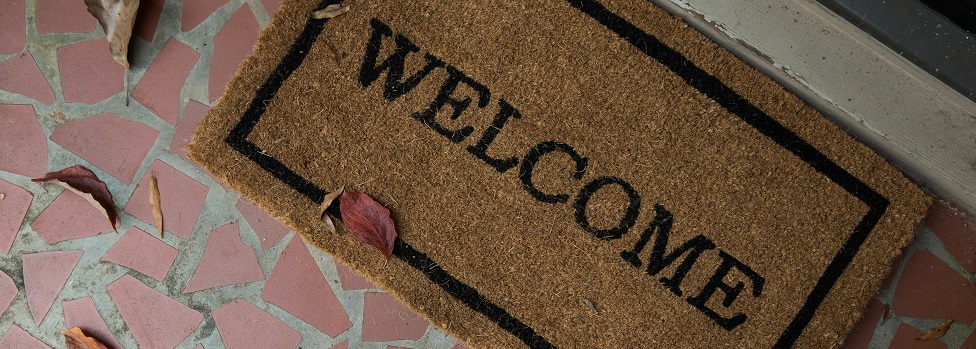
Imagine the shock of reading your deed carefully and finding this rule: “This property shall not be resold, leased, rented or occupied except to or by persons of the Aryan race.” The Seattle-based Windermere Real Estate company doesn’t want to put up with such findings any more. This year, it’s working with its clients to use Washington state law to delete offensive deed language.
Under Washington law, an owner or resident of a property with an invidious deed restriction may have it stricken from the public records. This recent addition to the law makes it easier for Washingtonians who hit walls trying to remove discriminatory language from the title of their property.
In related news, Notarize, an online notary startup, now offers free notarizations to remove offensive covenants. Notarize calls it a matter of digital inclusion. The company’s website supplies assistance for Washingtonians, and will be expanding the service to Arizona, California, Colorado, Nevada, Idaho, and Oregon. In many other states, though, there is neither a process for removal not any pending legislation to deal with the matter.
How Race-Based Deed Restrictions Came Into Existence
Restrictive covenants in a deed stop homeowners from doing something with a property they buy. Restrictions in a deed might, for example, commit homeowners to maintain their homes to match an area’s historical character. But they also have a troubling history as tools to discriminate and exclude. As Suzanne Spellen wrote in the Brownstoner, “It seems that people have always looked for a way to control the use of land or property, and/or the people who are allowed to live on it.”
Race-based housing restrictions had hardened into custom by the early 1900s, to prevent integration of Black, Jewish, Asian, Italian, Russian, Muslim, Hispanic and other U.S. residents at different times in the country’s history into many residential areas across the country. Embedded into the language of legally binding contracts, they had to be followed, or owners could lose their property.
The real estate industry backed these restrictions. State courts allowed and enforced them. In the 1926 decision Corrigan v. Buckley, the U.S. Supreme Court itself upheld the use of racial covenants.
In 1948, the Supremes reversed themselves. Through the landmark case of Shelley v. Kraemer, the Supreme Court deemed race restrictions in deeds unconstitutional, and declared that such clauses could not be enforced. Three justices recused themselves. They owned property with racial covenants.
Owners, brokers, lenders and real estate agents continued to repeat patterns of segregation after 1948.
Lenders and title insurers were steadily creating the now-infamous practice of redlining — deliberately picking and rejecting applicants for certain mapped areas. This scuttled opportunities for generations, as those who were excluded lost the ability to build and pass on wealth through investing in real estate. Redlining was a common, constant practice up until the Fair Housing Act of 1968 banned housing discrimination on the basis of race, color, religion, or national origin, more than a century after the United States did away with slavery.
Still, tens of thousands of race-based deed restrictions linger in county records. Many are not digitized and will take years to uncover, as Teresa Boardman wrote for Inman, who quotes covenants in Minnesota, such as: “The grantee cannot sell, lease or rent said real estate to any one of the black, brown, yellow or Semitic races.”
When Prejudice Runs With the Land
Unless a covenant’s language ends the restriction at a certain time, it runs with the land and binds everyone else in the future chain of title. It will always be visible in a title search. This is why, to this day, many property deeds still contain hurtful restrictions.
More than a decade ago, California lawmakers passed a bill to confront unconstitutional restrictions based on race or religion, sexual identity or orientation, marital or familial status, disability, ancestry or income source. The bill would have provided Restrictive Covenant Modification forms, through state‑mandated local programs enlisting county attorneys and deed recorders. But Assembly Bill 985 was vetoed in 2009 by Gov. Arnold Schwarzenegger, who said: “The restrictive covenants this bill would redact from certain recorded documents are already illegal and void under existing law.”
It was, of course, a circular legal conversation. After all, if such a restriction is illegal and void, why can’t it be deleted? The issue isn’t just whether they’re illegal; it’s whether they can continue to offend and hurt in perpetuity. So, the counties are now stepping up and making it happen. Orange County did so in 2020.
As with California and other states, oppressive restrictions are void under the Discriminatory Provisions section of Texas Property Code, which states:
If a restriction that affects real property, or a provision in a deed that conveys real property or an interest in real property, whether express or incorporated by reference, prohibits the use by or the sale, lease, or transfer to a person because of race, color, religion, or national origin, the provision or restriction is void.
Texas resident Jessica Richardson discovered one such void covenant in her deed in 2019. She showed CBS19 the deed, which said that the only Black people who could reside in the home were servants. That’s when Texas State Senator Bryan Hughes (R-Mineola) introduced SB 222 to enable deletion of such clauses. If, as expected, the provision is enacted, Texans will be able to use forms to have county recorders remove the offending deed language. The new provisions is to take effect September 21, 2021.
New York is now considering a similar bill.
Termination and Release of Restrictive Covenant

If you find such a restriction in your deed, what can you do?
Check with your county to find out if the recorder of deeds will accept and record a Termination and Release of Restrictive Covenant document.
This document should:
- Set forth the name of the title holder and incorporate the legal real estate description.
- State the origin of the covenant, and the reason for its illegality and unenforceability, and that the covenant is not required by the county.
- Declare that housing discrimination is unconstitutional and barred under state and federal and law.
- Declare the title holder’s reprehension of the unconstitutional covenant.
- State the desire to strike the covenant, with the written consent and approval of the county.
- Conclude with an effective date that the restrictive covenant is cancelled for the record, and no longer an encumbrance on the title.
Signatures and a notary’s acknowledgement should follow these recitals. The county recorder or a real estate lawyer should be able to furnish further necessary text.
At Deeds.com we encourage counties to take supportive action to repudiate harmful, hurtful deed restrictions.
Supporting References
TX Code Sec. 5.026(a); and Bill Text 87(R), SB 222.
CA Bill Text – AB-985 Real property: Discriminatory Restrictions (vetoed).
Andrea Brambila for Inman: Windermere Helps Homeowners Strike Racist Language From Deeds (Feb. 2021).
Tim Glaze, Housing Wire: Notarize Offers Free Notarizations to Fight Racist Title Language (Feb. 2021).
CBS News (video): Texas Clauses That Once Banned Racial Minorities From Owning Some Homes Could Be Removed (Feb. 2021).
David Lippman, KYTX: Bill would allow Texas homeowners to remove discriminatory wording from property records (Feb. 2021).
And as linked. Photo credits: Andrew Neel and Anna Shvets, via Pexels.com
